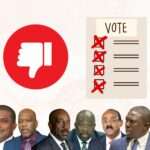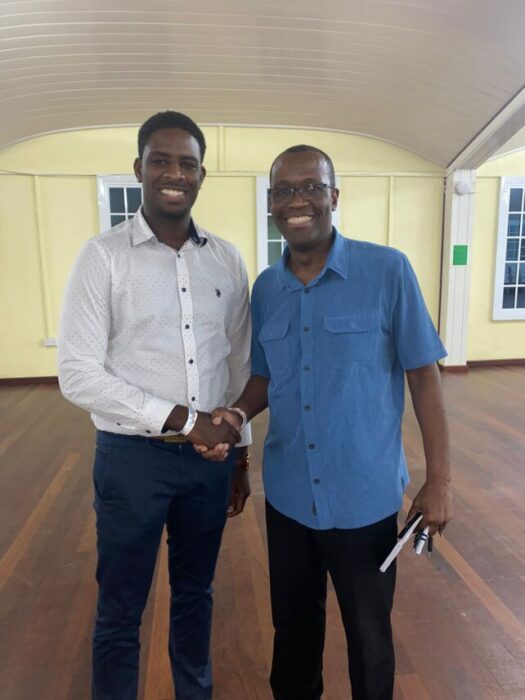
It’s Easy to Be Cynical About Elections
By Kieron Murdoch | Opinion Contributor
All around the world, in systems where people have the opportunity to vote in free and fair elections, it can often be challenging to achieve a very high voter turnout consistently. One of the issues that sometimes holds people back is apathy, disillusionment or cynicism as regards politics and governance. It does no good however, to disengage with the system.
Today, as far as elections go, our eyes are fixed on the US Presidential race. It has been tumultuous to say the least, with the replacement of one party’s candidate a few months before the election and the attempted assassination of the other, never mind the fact that it has also been their most divisive election in modern times.
In 2004, 2008, 2012, 2016 and 2020, US voter turnout at presidential elections was 54.3, 60.1, 61.6, 58.0, 59.2 and 65.9 percent respectively. This represents the turnout of what is referred to in the US as the voting eligible population. Their 2020 election saw “the highest rate for any national election since 1900” according to the Pew Research Center.
Here in Antigua and Barbuda, turnout in our last election in 2023 was 70.34 percent. In 2018, it was reportedly 76.51 percent. In 2014, it was 90.2 percent, and in 2009 it was 80.27 percent. Our turnout is measured as a percentage of the actual number of registered voters. Voting age people who are not registered are not reflected.
As mentioned, sometimes the challenge in getting people out to participate in elections has to do with apathy, disillusionment or cynicism. Apathy suggests that a person is largely indifferent and simply not interested in voting for whatever reason. Someone who holds few strong opinions on key policies, candidates or parties might be said to be apathetic.
Disillusionment suggests that a person has lost faith in the process and its ability to deliver the outcomes they desire based on their experience engaging with it or observing it play out. Similarly, cynicism could be described as a situation where, in spite of their genuine concerns about the development and governance of their country, a person is distrustful of the system and doubts its ability to bring change through the ballot box.
In addressing cynicism among the US electorate, President Barack Obama stated, “What I’m asking for is hard. It’s easier to be cynical; to accept that change isn’t possible, and politics is hopeless, and to believe that our voices and actions don’t matter. But if we give up now, then we forsake a better future.”
The right to vote is a terrible thing to waste, particularly if you live in a country where the system, despite its challenges, is still free and fair, if not, mostly free and fair. There are many places where people do not have the right to freely choose their government or their direction as a society, and in so doing, govern themselves.
Perhaps one of the obstacles we face is the fact that we expect the voting and political system to be perfect without much engagement from us, or with minimal engagement from us, or with periodic engagement from us. Somewhere, some lied to us and told us we were entitled to a perfect system.
But we cannot be entitled to a perfect system, well adjusted, working with integrity and transparency, and delivering maximum results unless we are willing to work on improving the system every day. Maintaining a democracy on liberal values with limited government, rule of law and civil rights is a constant battle which citizens must fight. The minute they tire, illiberal habits tend to creep in.
We cannot simply expect to vote and do little else before and after, and then see the political, social and economic outcomes we desire. As citizens, we should be civically and politically active year round, organising ourselves through civil society, petitions, forums, the media, and so on, and pressing the issues that are important to us in as many ways as we can. Most of us do not. It’s a lot of work.
But the consequence of being minimally engaged is creating the environment for power to go unchecked in the ways it ought to be. Then, we turn around and hold the right to vote in contempt, as opposed to holding our own civic inaction and after each election in contempt. To decide that the right to vote is unworthy of our effort to exercise it achieves little.
Voting is perhaps the least all that we ought to do. But it is important nonetheless in any democracy. It is natural to become frustrated when the change we desire is not seen after we participate.
But we ought to remember that democracy is refined over decades and decades. We would be naive to think that voting in one, or two, or three elections will purge our system of its problems, and set our country on the right track. People have to consistently select the best representation over and over and over, until the quality of politics begins to improve. And outside of elections, citizens must pressure the government of the day daily for good policies, accountability, and integrity.
About the writer:
Kieron Murdoch worked as a journalist and later as a radio presenter in Antigua and Barbuda for eight years, covering politics and governance especially. He is an opinion contributor at antigua.news. If you have an opinion on the issues raised in this editorial and you would like to submit a response by email to be considered for publication, please email [email protected].






Thanks for THIS Editorial Mr. Murdoch ….. I would like to arrange for THESE VIEWS to go VIRAL in Our Nation of ANU/BAR ….
These Views need to be REPEATED Again and Again and Again and Again in Our Nation …..! Until We Really and Truly GET IT ….. Peace! 🌻😇🙏🏿